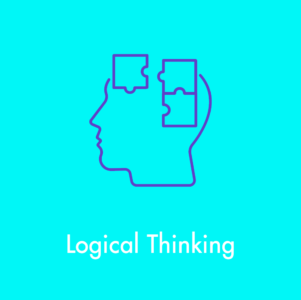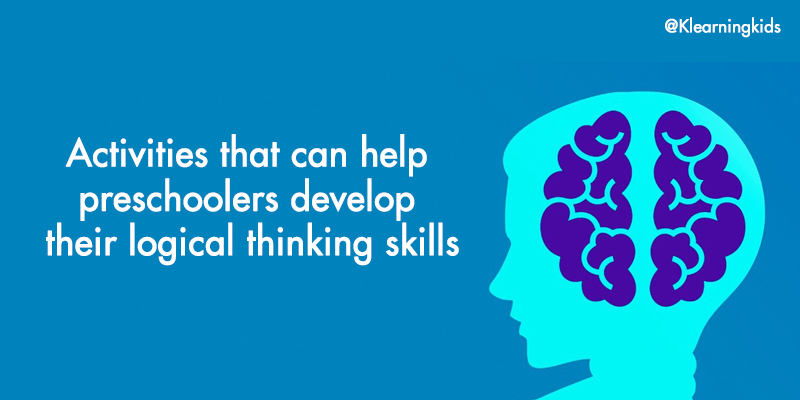What is Logical thinking?
Logical thinking refers to the ability to reason and solve problems in a systematic and orderly way. It involves the ability to identify patterns, analyze and evaluate information, and draw conclusions based on evidence. Children’s ability to think logically tends to improve as they grow and develop, and it is an important skill for success in both school and everyday life.

Short story on logical thinking:
“Once upon a time, in a small village, there was a boy named Jack who loved to play outside. One day, Jack’s mom gave him a special task. She told him to go to the store and buy some apples for dinner. Jack was excited to help and set off to the store.
As he walked, he noticed that there were several different paths he could take to get to the store. One path went through the park, another went through the forest, and a third went through the neighborhood. Jack had to decide which path to take.
He started by thinking about the pros and cons of each path. The path through the park would be the shortest, but it might be crowded with other kids playing. The path through the forest would be the longest, but it would be quiet and peaceful. The path through the neighborhood would be in the middle in terms of distance, but he wasn’t sure if it was the safest option.
After considering all of these factors, Jack decided to take the path through the neighborhood. It was the safest option and it was also a good middle ground in terms of distance.
As he walked through the neighborhood, Jack saw his friend Ben playing in his front yard. Ben asked Jack where he was going and Jack told him about his mission to buy apples for dinner. Ben offered to come with him and Jack was happy to have the company.
Together, Jack and Ben walked to the store and bought the apples for dinner. Jack’s mom was grateful for their help and praised them for using logical thinking to make a good decision about which path to take.
In this story, Jack used logical thinking to weigh his options and make a decision about which path to take. He asked himself questions, considered the pros and cons of each option, and made a choice based on the information he gathered. By using these logical thinking skills, Jack was able to successfully complete his task and have a fun adventure with his friend Ben.”
How logical thinking skills will benefit your child:
- Encourage problem-solving: Encourage children to think through problems and find solutions on their own.
- Help children understand cause and effect: Explain how events and actions are related, and help children understand how one thing can lead to another.
- Encourage critical thinking: Encourage children to ask questions and think critically about the world around them.
- Encourage exploration and experimentation: Encourage children to explore and try new things, and encourage them to think about the reasons for their observations.
- Provide opportunities for math and science learning: Activities that involve math and science can help children develop logical thinking skills.
It’s important to remember that children develop at different rates, and some children may naturally be more inclined towards logical thinking than others. However, with support and encouragement, all children can develop these skills.

Some activities that can help preschoolers develop their logical thinking skills:
Sorting and classifying: Preschoolers can practice logical thinking by sorting and classifying objects based on different criteria, such as size, shape, or color. For example, you could give your child a basket of toys and ask them to sort the toys into groups based on shape or color.
Pattern recognition: Preschoolers can also practice logical thinking by identifying and completing patterns. You can create simple patterns with blocks or other objects and have your child continue the pattern. As they get better at this, you can create more complex patterns for them to solve.
Sequencing: Help your child practice logical thinking by having them put events or objects in order. You can use pictures or real objects to create simple sequences for them to follow, such as putting their toys away in a specific order.
Problem-solving: Preschoolers can practice logical thinking by solving simple problems. For example, you could give them a puzzle with a few missing pieces and ask them to figure out which pieces go where. You can also encourage them to come up with their own solutions to everyday problems, such as how to reach a toy that is out of their reach.
Cause and effect: Help your child understand logical thinking by showing them cause and effect relationships. For example, you could show them how turning on a light switch causes the light to turn on, or how adding water to soil causes plants to grow.
By engaging in these activities, preschoolers can develop their logical thinking skills and improve their ability to solve problems and think critically.
